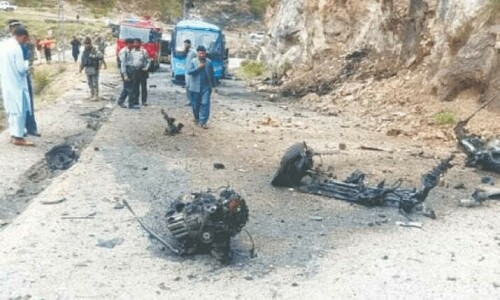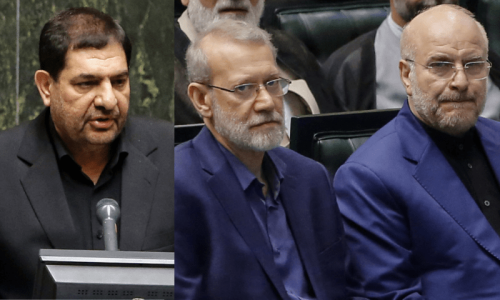ISLAMABAD: Former foreign secretary Riaz Mohammad Khan fears that some in Pakistani establishment could still be harbouring the misplaced hope of seeing Taliban return to power in Kabul and warns against exaggerating apprehensions of growing Indian influence in Afghanistan.
Speaking at the Institute of Strategic Studies, he said there could still be temptations of the option of “strategic depth” for countering Indian ingress in Afghanistan.
“This notion exists in our psyche and is based on the hope that Taliban could return to power and we can have a friendly and pliant government in Afghanistan,” he said, adding that Pakistan had remained hostage to the thought that Taliban were its assets.
The country, he warned, would face an “escalating cost” for any assistance given by non-state actors operating from its territory to Afghan Taliban.
Thirty years were long enough for a nation to learn lessons but Pakistan had still not learnt a lesson from Afghanistan, he said.
Mr Khan, who headed the Foreign Office from 2005 to 2008, stressed the need for assessing if a “Taliban option” still existed.
Taliban stood little or no chance to return to Kabul, he said, adding that Taliban leaders were never ready to do Pakistan’s bidding.
The seasoned diplomat said Pakistani Taliban always claimed that they obeyed Afghan Taliban chief Mullah Omar but neither he nor any other Afghan militant thought to be friendly to Pakistan denounced violence perpetrated by them or asked them to stop it.
Mr Khan warned that return of Taliban to power in Afghanistan would promote extremism in Pakistan and the emerging scenario would be graver than Indian influence in Afghanistan.
He cautioned against over-stating the fears of Indian influence in Afghanistan for justifying the Taliban option.
Indirectly advocating an Indian role in Afghanistan, he said positive stakes of regional countries in a stable and peaceful Afghanistan served Pakistan’s interest.
He said Pakistan faced no conventional threat from the western border (with Afghanistan) due to demographic overlap and intractable geographic terrain. But a non-conventional threat is there and Pakistan is already facing it in the shape of militancy.
Mr Khan called for formulating a clear narrative on Afghan policy, Taliban and relations with the Afghan government. Pakistan, he advised, should proceed with confidence that a stable Afghanistan was in its interest.












































